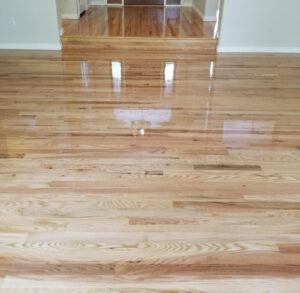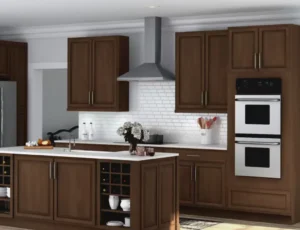window tinting Highlands Ranch is more than just a stylish upgrade for your vehicle—it’s a practical solution that offers a host of benefits. Whether you’re looking to enhance privacy, reduce glare, or protect your car’s interior, understanding the ins and outs of car window tinting can help you make an informed decision. In this ultimate guide, we’ll dive into the benefits of window tinting, explore the different types available, and break down the costs involved. Plus, we’ll discuss how car window tinting compares to other protective options like paint protection film and clear bra.
Table of Contents
window tinting Highlands Ranch is more than just a stylish upgrade for your vehicle—it’s a practical solution that offers a host of benefits. Whether you’re looking to enhance privacy, reduce glare, or protect your car’s interior, understanding the ins and outs of car window tinting can help you make an informed decision. In this ultimate guide, we’ll dive into the benefits of window tinting, explore the different types available, and break down the costs involved. Plus, we’ll discuss how car window tinting compares to other protective options like paint protection film and clear bra.
What Is Car Window Tinting and Why Is It Worth Considering?
Car Window Tinting Explained: The Basics
Car window tinting involves applying a thin film of material to your vehicle’s windows to modify their appearance and functionality. This film comes in various shades and types, each designed to provide specific benefits. The installation process involves carefully applying the film to the inside of the windows, ensuring a smooth and bubble-free finish.
Key Benefits of Car Window Tinting:
• Enhanced Privacy: Tinted windows obscure the view into your vehicle, offering increased privacy for passengers and valuables.
• Reduced Glare: Tinted windows help to minimize glare from the sun and headlights, improving driving comfort and safety.
• UV Protection: High-quality tint films block harmful UV rays, protecting both passengers and the car’s interior from sun damage.
• Temperature Regulation: Tinting can reduce the amount of heat that enters the vehicle, leading to a cooler and more comfortable driving experience.
Types of Car Window Tinting Films: Which One Is Right for You?
Exploring Your Options: Different Types of Window Tinting Films
When it comes to window tinting, there are several types of films to choose from, each offering unique benefits:
1. Dyed Window Tinting:
• Description: Utilizes a layer of dye applied to the film to reduce heat and glare.
• Benefits: Offers a sleek appearance and is often the most cost-effective option.
• Best For: Those seeking an affordable option with moderate heat and glare reduction.
2. Metalized Window Tinting:
• Description: Contains tiny metallic particles that reflect heat and light.
• Benefits: Provides excellent heat rejection and adds durability to the film.
• Best For: Individuals who want enhanced performance and durability.
3. Ceramic Window Tinting:
• Description: Features advanced ceramic technology to block heat, UV rays, and glare.
• Benefits: Offers superior heat rejection, clarity, and UV protection without interfering with electronic signals.
• Best For: Those seeking top-notch performance and comfort.
4. Carbon Window Tinting:
• Description: Incorporates carbon particles to provide a matte finish and high heat rejection.
• Benefits: Adds a unique look and helps to keep the interior cooler.
• Best For: Car enthusiasts looking for both style and performance.
Comparing Window Tinting to Paint Protection Film and Clear Bra
How Does Window Tinting Stack Up Against Paint Protection Film and Clear Bra?
While car window tinting offers several benefits, it’s important to understand how it compares to other protective options like paint protection film (PPF) and clear bra:
1. Paint Protection Film (Clear Bra):
• Purpose: Protects the vehicle’s paint from rock chips, scratches, and environmental damage.
• Application: Applied to the exterior surfaces of the vehicle, including high-impact areas like the hood and bumpers.
• Benefits: Offers a nearly invisible layer of protection that preserves the original paint.
2. Car Window Tinting:
• Purpose: Enhances privacy, reduces glare, and blocks UV rays for a more comfortable and protected interior.
• Application: Applied to the interior side of the vehicle’s windows.
• Benefits: Provides aesthetic enhancement and improved driving comfort.
3. Combining Both:
• Enhanced Protection: Using both window tinting and paint protection film offers comprehensive care for your vehicle, addressing both interior and exterior needs.
• Consistent Look: Combining these services ensures a cohesive appearance and maximizes the benefits of each.
Costs of Car Window Tinting: What to Expect
Understanding the Investment: Factors Influencing Tinting Costs
The cost of car window tinting can vary based on several factors:
1. Type of Film:
• Dyed Films: Generally the most affordable option, with prices ranging from $150 to $300 for a full vehicle tint.
• Metalized Films: Typically cost between $200 and $400, depending on the quality and brand.
• Ceramic Films: High-end option with prices ranging from $400 to $800, offering superior performance and clarity.
• Carbon Films: Usually priced between $300 and $600, combining style with heat rejection.
2. Vehicle Size and Number of Windows:
• Smaller Vehicles: Generally cost less due to fewer windows.
• Larger Vehicles: Such as SUVs or trucks, will be more expensive due to the increased coverage area.
3. Professional vs. DIY Installation:
• Professional Installation: Ensures a high-quality finish and typically costs an additional $100 to $300.
• DIY Kits: Available at lower prices but may result in a less flawless application.
Choosing the Right Window Tinting Company
What to Look For in a Window Tinting Company
To ensure you get the best results, consider the following when choosing a window tinting company:
1. Experience and Expertise:
Check for Credentials: Look for companies with a proven track record and experienced technicians.
2. Quality of Materials:
High-Quality Films: Ensure the company uses reputable brands and high-quality materials.
3. Customer Reviews:
Read Reviews: Look for positive feedback from previous customers and check for any complaints.
4. Warranty and Aftercare:
Warranty Coverage: Choose a company that offers a warranty on their work and provides aftercare instructions.
Conclusion
In conclusion, car window tinting is a valuable investment that enhances both the aesthetics and functionality of your vehicle. With benefits ranging from improved privacy and glare reduction to UV protection and temperature regulation, it’s a practical upgrade that offers numerous advantages. By understanding the different types of window tinting films and their associated costs, you can make an informed decision that suits your needs and budget.
When paired with other protective measures like paint protection film and clear bra, window tinting provides a comprehensive solution for maintaining and enhancing your vehicle’s appearance and comfort. Whether you’re looking to protect your investment or simply enjoy a more stylish ride, car window tinting Lone Tree is a smart choice that delivers both practical benefits and visual appeal.
By choosing a reputable window tinting company and considering the combined benefits of tinting and other protective services, you can ensure that your vehicle looks and performs its best for years to come.




More Stories
Great Expectations Floor Restoration Boise: Bringing Your Hardwood Floors Back to Life
On-Site Public Insurance Claims Adjuster Los Angeles: Why Local Expertise Makes All the Difference
Renovate Builders Remodeling Seattle: Transforming Homes with Expert Craftsmanship